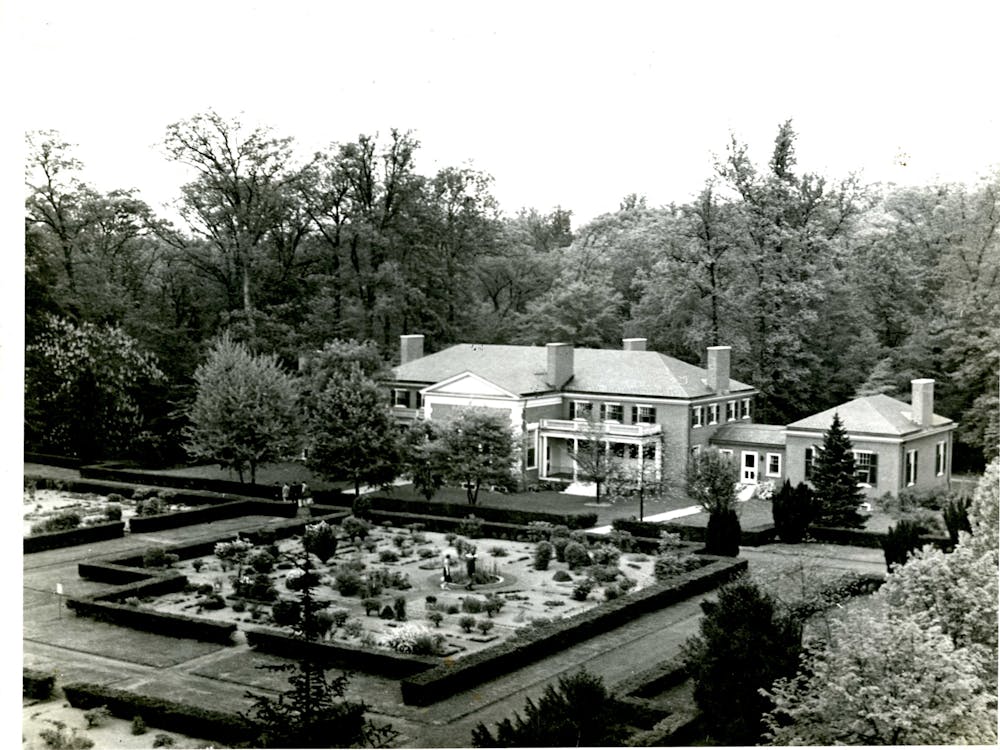Public speaker and activist Wagatwe Wanjuki spoke about combating sexual assault and rape culture on college campuses, Tuesday evening in Hodson Hall.
The event, hosted by the Sexual Assault Resource Unit (SARU), kicked off their programming for Sexual Assault Awareness Month.
Wanjuki is a national advocate against sexual violence on college campuses. Her work was featured in CNN’s documentary The Hunting Ground. She co-founded the anti-rape organization Survivors Eradicating Rape Culture.
As a survivor of sexual violence herself, Wanjuki opened up about her time at Tufts University in the mid-2000s. She explained that as a first-generation college student with immigrant parents, she decided to enroll because she believed that Tufts valued human rights.
After she reported her assailant, the school failed to act, leaving her feeling devastated and alone.
“I at least wanted to go in court and say in front of other people, in front of other witnesses, that what [the assailant] did to me is wrong, it was unacceptable, and it’s a violation of the values and norms that Tufts claims to stand for,” Wanjuki said. “Unfortunately... they weren’t going to do anything at all, and that kind of blew my mind.”
Tufts’ response to her report disappointed Wanjuki.
“I was very self-conscious about my identities and about being a black person reporting to the police,” Wanjuki said. “My assailant was also black and also another student. It was a lot of friction, and I didn’t know what to do.”
After sharing her story, Wanjuki wanted to address fighting rape culture on college campuses. She said that instances of sexual violence are not decreasing, even though colleges are now actively addressing it.
She also stressed the need to change the discourse surrounding sexual violence. Last year, Wanjuki launched the #JustSaySorry social media campaign. She did this by livestreaming a video of her burning a Tufts University sweatshirt on Facebook, which garnered immediate attention.
She explained that this act was an attempt to shake up the idea of “respectability politics.”
“I still deserve justice, even if I burn things on the internet and livestream it,” Wanjuki said. “I still was sexually assaulted, I still endured a really messed up injustice. Two injustices, right? Being sexually assaulted, being abused and then also having my school refuse to do anything about it.”
Wanjuki said it will take everyone to fight against sexual violence in the same way that most people, intentionally or not, normalize and excuse the behavior of rapists.
She said that excusing this behavior as “locker room talk” or because “boys will be boys” is offensive, because we should expect better of men.
She referred to the prevailing power structures upholding and perpetuating these norms.
“We have to do different things to make sure that we’re not implicitly allowing the status quo to continue,” Wanjuki said. “The status quo is allowing the people who are on top with the most power to keep on exerting that power. We can have a world free of sexual violence.”
SARU Outreach Chair Anna Hasche explained why she thinks inviting speakers like Wanjuki to speak on campus is important.
“There’s not a lot of public healing spaces or even public forums to talk about this issue,” Hasche said. “Assault isn’t talked about enough, but also, when it does happen, when you’re recovering, the way society makes you feel about it, the messages you receive are rooted in shame.”
Hasche said that Wanjuki was a good speaker to start Sexual Assault Awareness Month because her story introduced many different themes they wanted to highlight, particularly the intersectionality of the experiences of survivors.
“Intersectionality is definitely really important,” Hasche said. “With the variety of stories, it’s important to hear that you’re not hearing this one narrative. Generally the stereotypical victim is some little, traditionally attractive white girl at a frat party, and then you’re just excluding so many people from that narrative, and that’s really not working to build a community or making people feel supported.”
Hasche mentioned other events hosted by SARU this month that will build on the themes introduced by Wanjuki.
Some of these events include a workshop for the national Monument Quilt project, a Title IX educational event and an alcohol and consent campaign at Spring Fair.
She said that through these events SARU hopes to provide a space for discussion and healing for survivors and allies alike.
“Like [Wanjuki] was talking about, finding your voice,” Hasche said. “That’s definitely something a lot of people, especially survivors, struggle with, and so I think events like this really create a space physically for that to happen and promote that both emotionally and also just through dialogue.”
Wanjuki said that while finding her voice was a difficult struggle for her, she now hopes to encourage college students to join the fight against sexual violence on campus.
“We can create sexual violence-free campuses,” Wanjuki said. “We can do that, it just takes all of us, and we all have to believe that rape is something that can be eradicated.”






















Please note All comments are eligible for publication in The News-Letter.